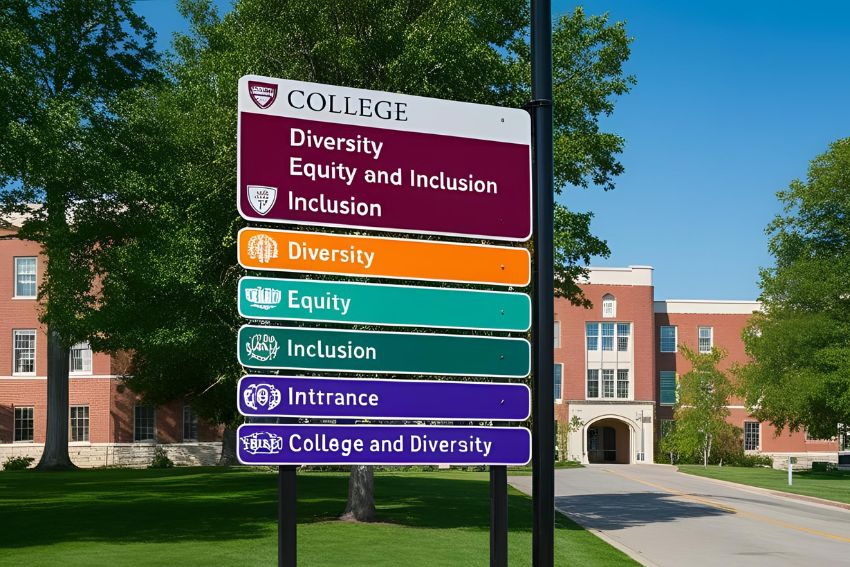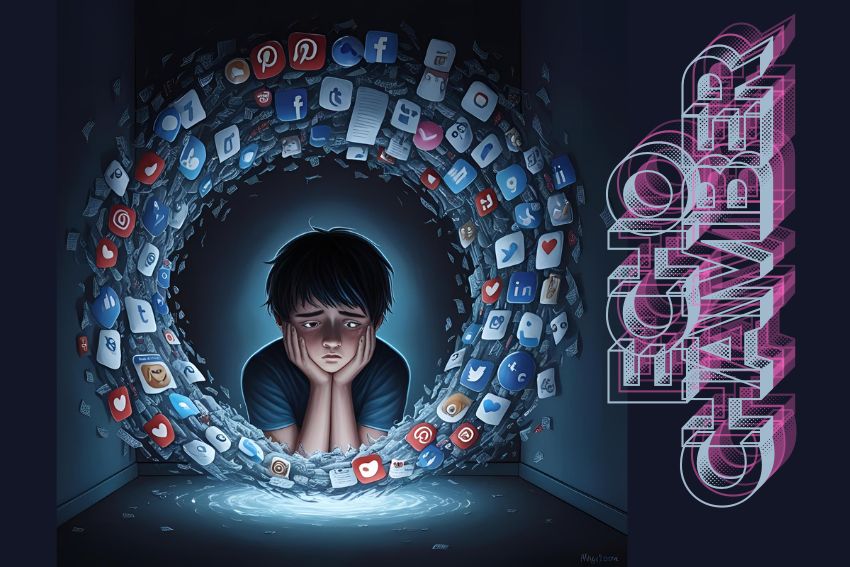International student analyzes differences between Chinese, American schooling

Chinese and American culture and their education differences can make it difficult for international students. From uniforms to goals to teaching strategies and expectations, both students and their hosts need to know the challenges of international studying abroad.
While some parts of education and learning are the same, I was unprepared for many of the academic adjustments and cultural differences coming from China into the American school system.
For example, while some private schools in the US may require student uniforms, every school in China designs their uniforms for the students. Some schools require students to wear them every day, but our school only needs to wear uniforms every Monday because, in the second class of every Monday in China, students from every school will go to the playground to conduct a flag-raising ceremony.
A patriotic education in China begins with a Monday flag raising ceremony. This helps students to move from a mental state of vacation to a state of learning. If the student does not wear a uniform on Monday and is found by the student union, then that student’s class score will be deducted.
There are two rows of students, or members of the student union, standing at the gate of the small campus every day. They are responsible for welcoming students and teachers, but they will also record the names and classes of students who are late.
When the familiar bell rings, every student will run back to their own classroom quickly and those who are late will be punished to stand at the door of the classroom for the entire period.
In addition to Chinese universities, at the beginning of the new semester, the school will allocate fixed classrooms to each student. Teachers will be in the office until 7 a.m. and then begin teaching. They have a fixed curriculum and start each lesson promptly.

Students do not change classrooms; instead, teachers travel to various classrooms to teach. However, each classroom will arrange a “Boss” (the teacher responsible for managing the classroom and the leader/manager of the class until graduation) so that each classroom is a family whose members represent the classroom.
The Boss often compares each class with other classes and students will work hard to improve class rankings. Each classroom will have a fixed score at the beginning of the semester. If a student makes a mistake, the score in his classroom will be deducted. To stabilize the score, the Boss will prevent the student from making mistakes. Classes compete against one another.
In the US, because students change classrooms throughout the day, they must remember the classrooms for each period and the different students in each class. This makes it difficult for me to remember another person’s name when I am not fluent in English. When I communicate with others, there are some minor problems. It gets so awkward when the students ask me if I know their names.
When Chinese class begins, the teacher enters the class and teaches, but the teacher pays attention to the ability to solve problems for the examinations. For example, you need to remember how to solve math problems in a variety of ways. These are designed to stump students, changing only a few numbers.
Our homework is also a lot of extended questions based on the problems from the day’s class. We also need to recite a large number of texts and ancient poems in Chinese class to use in the examinations.
It’s easier to study in America. When the class starts, I can sit with my friends. The relationship between teachers and students is more like friends. Sometimes at the beginning of class, teachers will chat with us or tell us some stories. This would not happen in China.

For example, while in America, at the beginning of a math lecture, the teacher just told us more about the methods and concepts and told the class to spend time learning themselves. In China, the teacher will tell students every step for every question and there is a lot of practice.
American teachers hope that you can find ways to do the problem. But the Chinese teacher will tell you the only way and how to apply it.
When I was in junior high school, I needed to arrive at school at 7 a.m. every day until 6 p.m. to go home. Sometimes I had to study late until 9 p.m. In addition to that, it takes time to finish homework.
I just need to keep my GPA up and finish my homework and exams. Every item is an important part and can’t be abandoned. Every day I am tempted by games at home and I want to leave my homework behind to play my favorite games. I am too lazy. But when I think of my GPA, I leave my favorite games with tears.
In China, our daily homework is supervised by our teachers and will not be counted in the total score as in the United States. Our total score is only the final exam.
I know that it is necessary to complete the homework. Completing the homework allows us to practice what we have learned each day, to remember it better and to have a deeper understanding of the application and interpretation of the concepts.
Because of the exhaustion of the school day in China, when we get home, we hope to relax with games. But after resting, we don’t have enough time to finish our homework.

There is an old saying in China that says, “You can hide at present, but you can never run.” As long as you want to enter university, you must face the “Gaokao” (National College Entrance Examination), which causes the most headache for Chinese students.
Chinese high school is three years. In the first two years, the teacher will pass on all the knowledge to you and during the last year, the teacher will teach the devil sprint-training for the Gaokao.
We analyze all the previous knowledge in a year, endlessly reviewing questions and taking daily simulation tests. The teacher will look for the previous exams for us to learn and we use the tests from previous years to do mock exams.
Most students need to memorize and endlessly brush their questions, allowing them to get familiar with this test mode and take the exam for entering college because the Gaokao decides your college acceptance.
The completion of the college entrance examination represents the liberation of the students. Entering university represents the end of the task; the pressure disappears and many students lose their motivation and cannot progress. This leads to many students failing in college.
There is a large population in China so people need a higher degree of education to get a better job. Better universities determine higher employment opportunities. The competition among students is very severe.
The pressure of students before the college entrance examination is like a mountain. The amount of government aid is very limited and only some excellent or poor students have access to it.
Many people cherish this opportunity to study in the US because they appreciate the different learning environment and the cost of studying in the United States.
While the high tuition fees are exchanged for our learning environment, many people will find that the American way of education is very suitable for them. They not only become better students, but also happy people.
On the other hand, some students become lazy because of the relaxed learning environment. I think some schools in California have lowered their entry requirements for international students, giving them the opportunity to study abroad.
The cost of Chinese students studying abroad is expensive. In China, the annual tuition fees of prominent universities are about 4000-8000 RMB (~$570-$1140), and the four-year university, plus accommodation and living expenses, is about 100,000 RMB (~$14,300 USD).

In comparison, the tuition fees for just one year in the United States have reached $50,000-$80,000 USD, equivalent to 600,000 RMB. For many families, sending their children abroad is like gambling. They pay all their savings to allow their children to have a better education and hope that their children can stay afloat in this ‘survival of the fittest’ society.
The pressure for international students is huge. If we fail, the cost is unimaginable. There are many problems we face studying in the United States, so the battle against failure is real. The cultural gap makes many Chinese students unable to communicate with others. Gradually, many become depressed. No one can listen to them when they are sad.
The frequency of our good friends’ contact from home gradually disappears. Even when I go back to China, few old friends can communicate and/or hang out with me. Everything is no longer familiar. The cost of international students is not only a lot of money but also an emotional cost. Facing our parents, we like to be strong. We don’t want our parents to bear great emotional pressure and listen to our complaints. We hope our parents can be at ease.
I agree that the United States is a beacon of liberalism and an open mind. People can express their opinions at will, whether they are big or small, related to themselves or have nothing to do with themselves.
However, it is this arbitrariness that leads many people to express their opinions freely without understanding the true meaning of the matter.
Although international students need to face many challenges, most of the international students are themselves in a foreign country. Sometimes it is lonely and sometimes helpless, but every international student is insisting on their own dreams. They know that distant relatives and friends are supporting them.
For another Feather international student column, read COLUMN: International student Luke Wu shares advice for students from foreign countries. For another article, read Custodians: More than a clean-up crew.
Mars Hou can be reached via email.









Megan LeBlanc • Nov 19, 2019 at 1:56 pm
This is such an amazing article Mars! It was so interesting to hear about the differences between the American and Chinese educational system!
Silva Emerian • Nov 19, 2019 at 9:03 am
Thank you for sharing your thoughts, Yuteng. This was such an eye-opening article. There are so many positive and negatives to both educational systems. I pray you will feel confident in your decisions and know that the Lord will set your path straight if you choose to follow Him. God bless you, and keep writing!